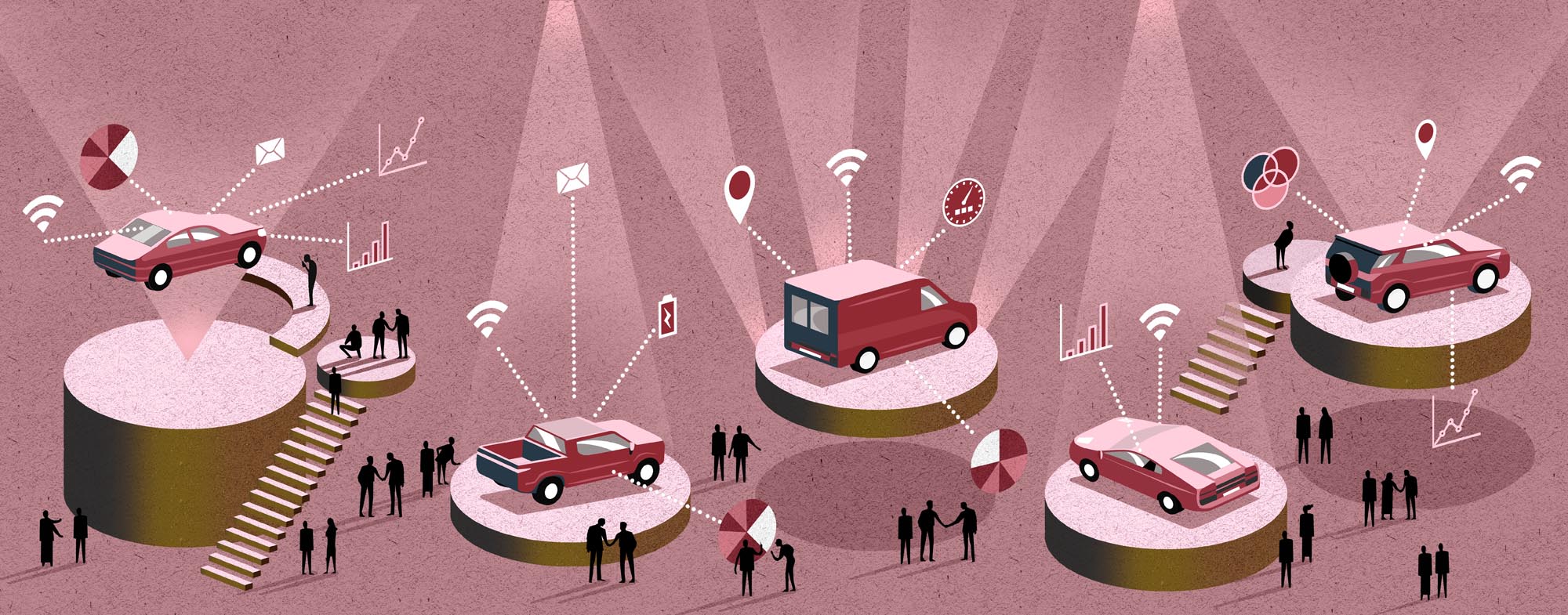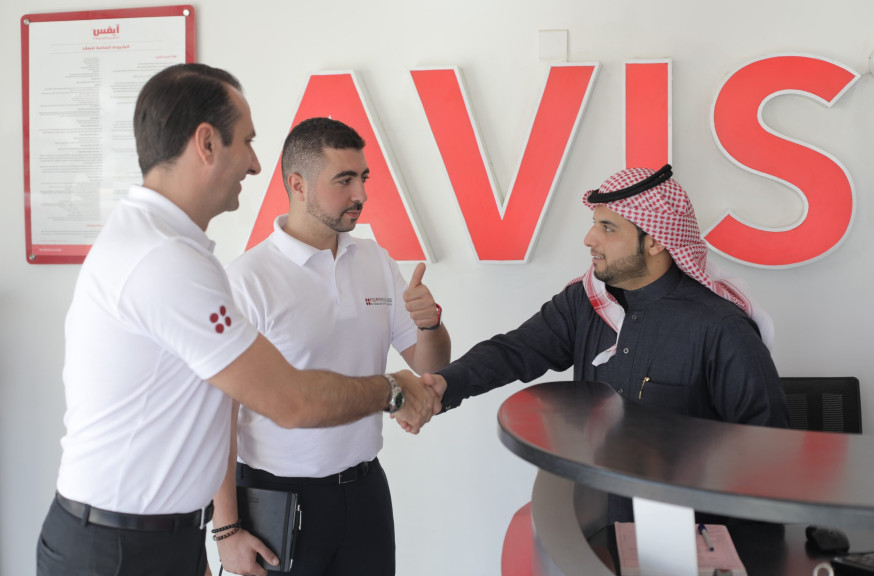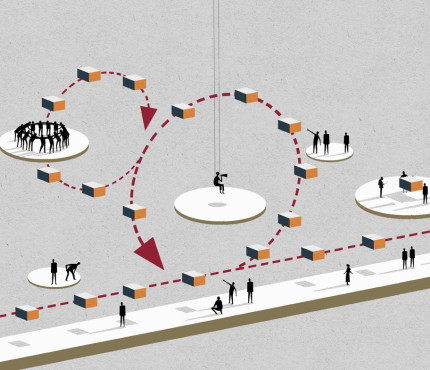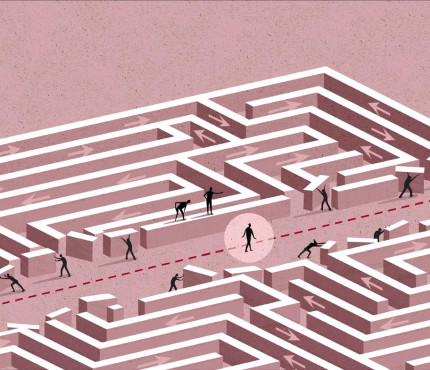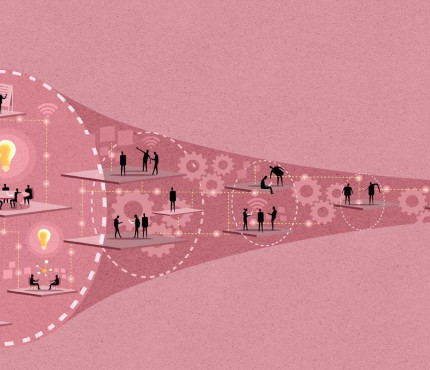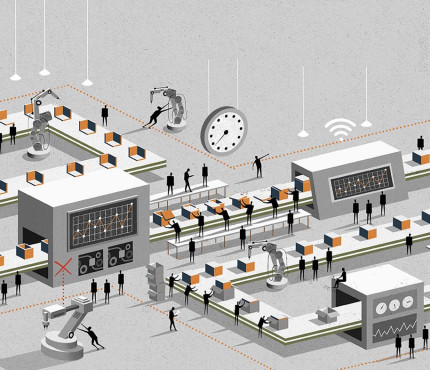The approach still prevalent in automotive retailing is product oriented, based on engaging and convincing the customer directly in the purchase phase. It’s easy to find showrooms filled with a stockpile of vehicles on display and at the same time having long delivery lead times from order to vehicle delivery, which is usually driven by incorrect KPIs with higher focus on the symptoms rather than in the root causes of the current problems.
On the other side, disruption in the automotive retail market is coming from ever changing customer behaviors, innovative products and technologies, and fierce increase in competition. Consumers enjoy a bigger variety of choices, greater access to information and to higher service standards. The rise in mobile technologies and social media is redefining the interaction and communication patterns, altering customer behavior, and as a result of these changes, dealers have lost their roles as the primary source of information and their ability to influence the customer. Vehicles are becoming more complex and the know how expected of salesmen is reaching ever higher levels. The financial sustainability of traditional dealership models is controversial.
However, automotive dealers will remain a crucial customer touch point, because of the importance for the customers to have a live experience with the vehicle before purchasing, as well as for obtaining advice from experts and additional information (not easily found online) and also because they are a point of reference as brand representative, as well as for the services offered.
Market forces are changing the industry, hence vehicle retailers must realize the importance of building a customer centric vision and brand advocacy by increasing their online presence, tracking and being able to gather and process data on real time in order to provide customized value-added services, invest on people’s technical and customer management skills, engaging the customer in the pre-purchase phase, reorganize and upgrade centers and stores.
The objective of the Lean digitized sales is to engage in a long-term relationship while offering a completely digitized sales experience. Implementing Lean methodology altogether with new technology brings significant improvement in terms of productivity, efficiency, cost and customer satisfaction. These improvements can only be sustained by establishing a culture of continuous improvement by the leadership on the ground.
Challenges
Fast changing market dynamics, increasing digitization and customer expectations are putting competitive pressure at the highest levels. Digitization has reduced the need to contact the dealer in the first instance. Internet and social media are now the first source of information and most customers now visit the dealership only to close the vehicle purchase. Under these conditions it is critical to increase service quality and provide a seamless customer journey among the various touch-points, while reducing as much as possible sales process lead time and retail price, in order to maximize customer satisfaction and retention. Five challenges have to be faced effectively in order to create successful and lasting bond with customer.
Any company operating in the automotive retail industry has to be able to cope with five important challenges:
Inconsistent offers to dealers
Different dealers provide customers with different price offers for the same product which can generate confusion and lack of trust.
Poor stock management and allocation to dealers
An efficient stock management and allocation to dealers is essential for successfully achieving sales target and customer satisfaction while keeping low warehousing costs.
Inefficient supply chain between dealers and distributor
A well-organized supply chain and a clear segregation of work into value streams is the basis for any effective automotive retail organization.
Limited access to technical support and data sharing
Dealers have to adapt to the current trend of increasing digitization and customer expectations, by setting up efficient IT and data management systems, with standardized reporting tools, that allow full and real-time deployment of information and resources.
Long customer lead times at the point of sales
Suboptimal customer flow and distribution on salesman generate long showroom customer journey lead time that can eventually result into customer loss.
Focus Areas
Waste in automotive retail processes can be identified, classified and minimized in the same way as waste in manufacturing. They also have tremendous potential for savings. Lean principles, Kaizen methods, and re-engineering approaches can be applied in a dealer environment for improving information flow, customer journey, variety of sales channels and vehicle display in the showroom. Successful application reduces the time spent to make a sale, improve the quality of the process, reduce the cost and ultimately result in increased customer satisfaction.
Areas of waste often identified in automotive retail operations:
Transportation
Unnecessary transports that result in added cost and lower productivity such as poorly scheduled delivery from distributor to dealer or poor management of vehicle stock and dispatch from warehouse to branch.
Inventory
Excess vehicle inventory due to poor visibility or inaccurate information, batch ordering of vehicles and spare parts, batch processing of sales reports. Poor inventory management affects working capital utilization and increase the frozen assets in the company.
Movement
Unnecessary movement of people (both customers and salesmen) due to either inefficient layouts, lack of resources or lack of standards (e.g. looking for items/documents because they do not have a defined place).
Waiting / Delays
People, systems and material delays due to badly integrated processes, such as poor communication between dealer and distributor. Waiting for customer on quotes, waiting for deliveries, approvals, issuance of vehicle insurance.
Over-production / Over-processing
Any duplicated effort that may be caused by poorly defined processes or responsibilities between the distributor and the dealer. Writing proposals before they are required, scheduling unnecessary sales calls/meeting. Unnecessary processing (e.g. relying on inspections, using multiple forms, generating unused reports).
Defects
Work that contains errors, information that is not efficiently received or processed, information that is wrong or does not have the quality it should have. Some examples: incorrect documentation, missing or wrong standards, data entry errors, invoice errors, extreme sales forecast inaccuracy.
Space
Any use of space that is less than optimal, such as inefficient warehouse management or use of warehouse space.
Lean solutions
Applying Lean solutions to automotive retail operations eliminates wasted time and resources, enhancing customer journey and increasing customer satisfaction, while allowing more customers to be processed using the same resources. Optimized websites, apps and use of third-party web-sites, efficient collection and processing of data, management and salesman skill matrix, trainings and incentives, upgrade of showroom layout, and pull system implementation are fundamental for breaking silos across the organization while bringing positive disruption with great impact on sales and profit growth.
By approaching the waste focus areas mentioned above with Lean solutions, some of the opportunities for improvement and benefits in automotive retail operations include:
- Reduced total lead time of end-to-end vehicle acquisition
- Reduced logistics and warehousing costs
- Increased forecast accuracy
- Increased warehouse utilization
- Improved stock health
- Increased total supply chain visibility
- Optimized customer distribution on salesmen
- Increased customer satisfaction
- Improved customer flow & vehicle display in the showroom
- We implement Lean Solutions in automotive retail operations in a similar way to other supply chain solutions, decreasing lead-time and significantly reducing costs and meeting the challenges without sacrificing quality.
Tangible improvements
Lead time
- By optimizing the documents & vehicles logistics and modifying the sales incentives, delivery lead-time was reduced by 43%
- Lean solutions in automotive retail operations lead to increase by 41% the percentage of vehicles delivered within 10 days (from 59% to 83% on average)
Quality
- Applying new sales Lean processes increased the average sales Net Promoter Score (NPS) by 25% (from 65% to 81%)
- The monthly sales conversion rate improved by 65% (from an average 23% to 38%) using Lean automotive retail concepts
- Introducing performance related incentive schemes, standardizing the activities and streamlining the automotive sales process allowed to reduce the headcount while increasing sales team productivity by 40%
Costs
- The Lean journey lead a big automotive dealing company to achieve 18% savings on manpower cost


